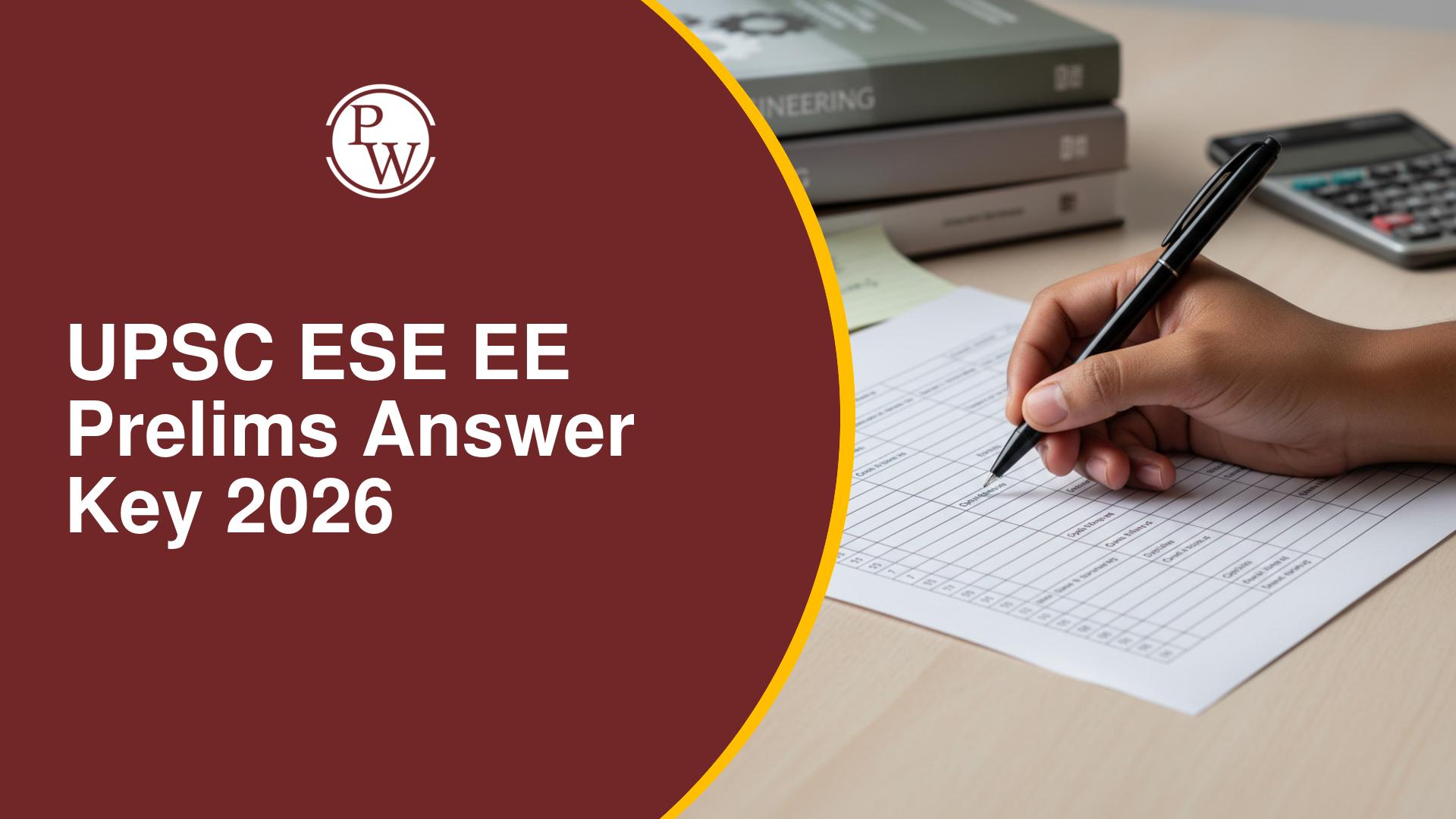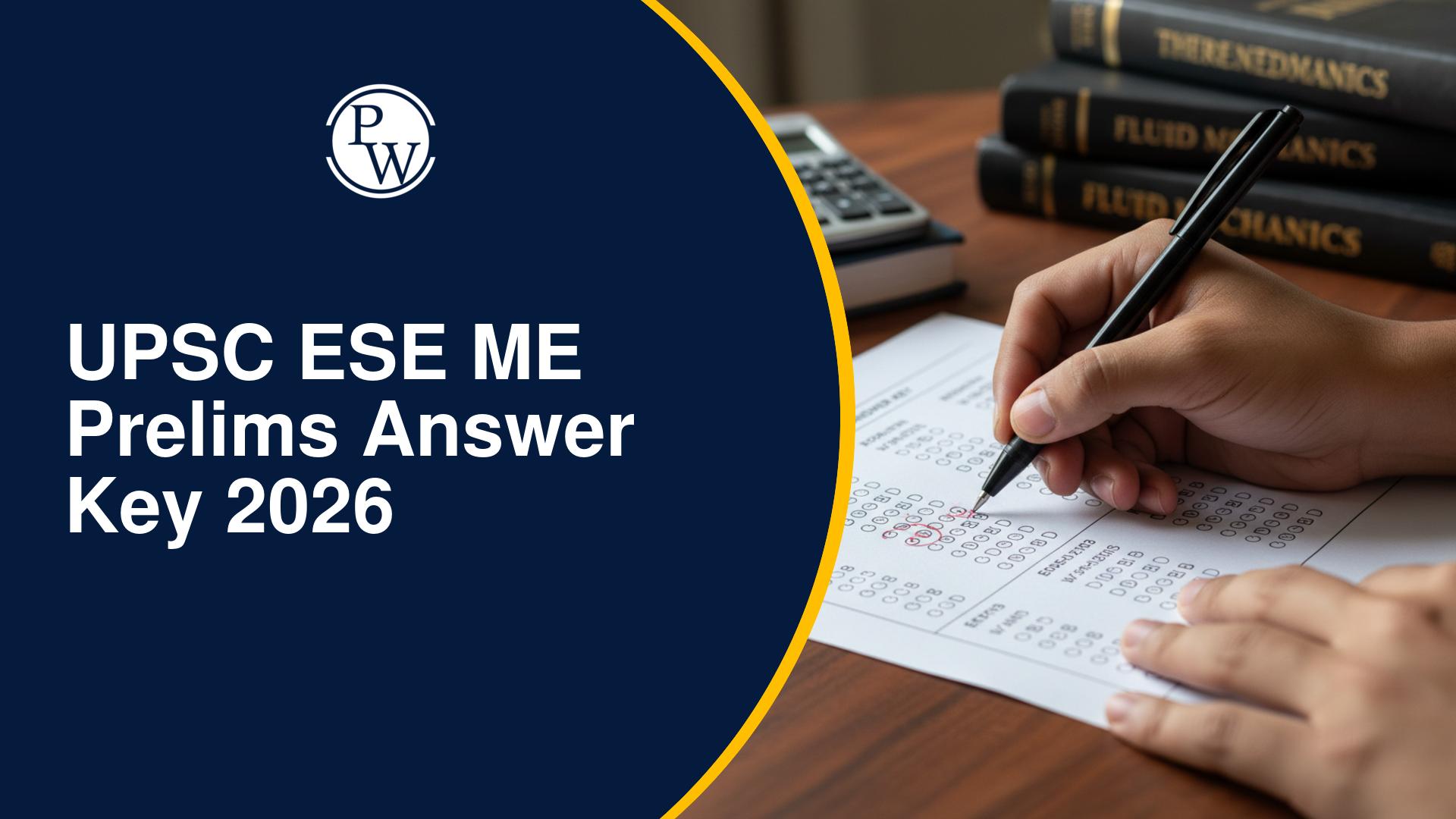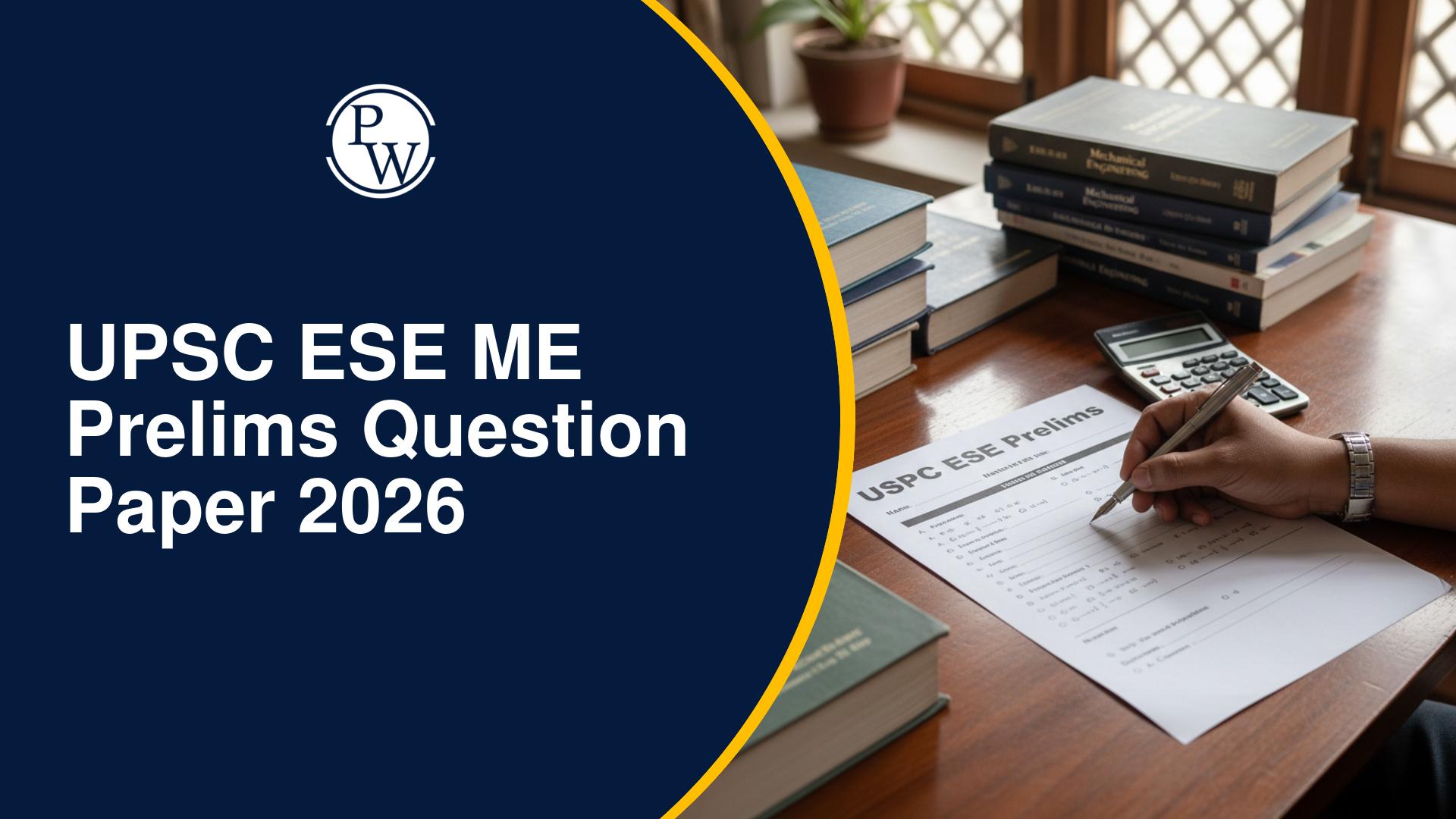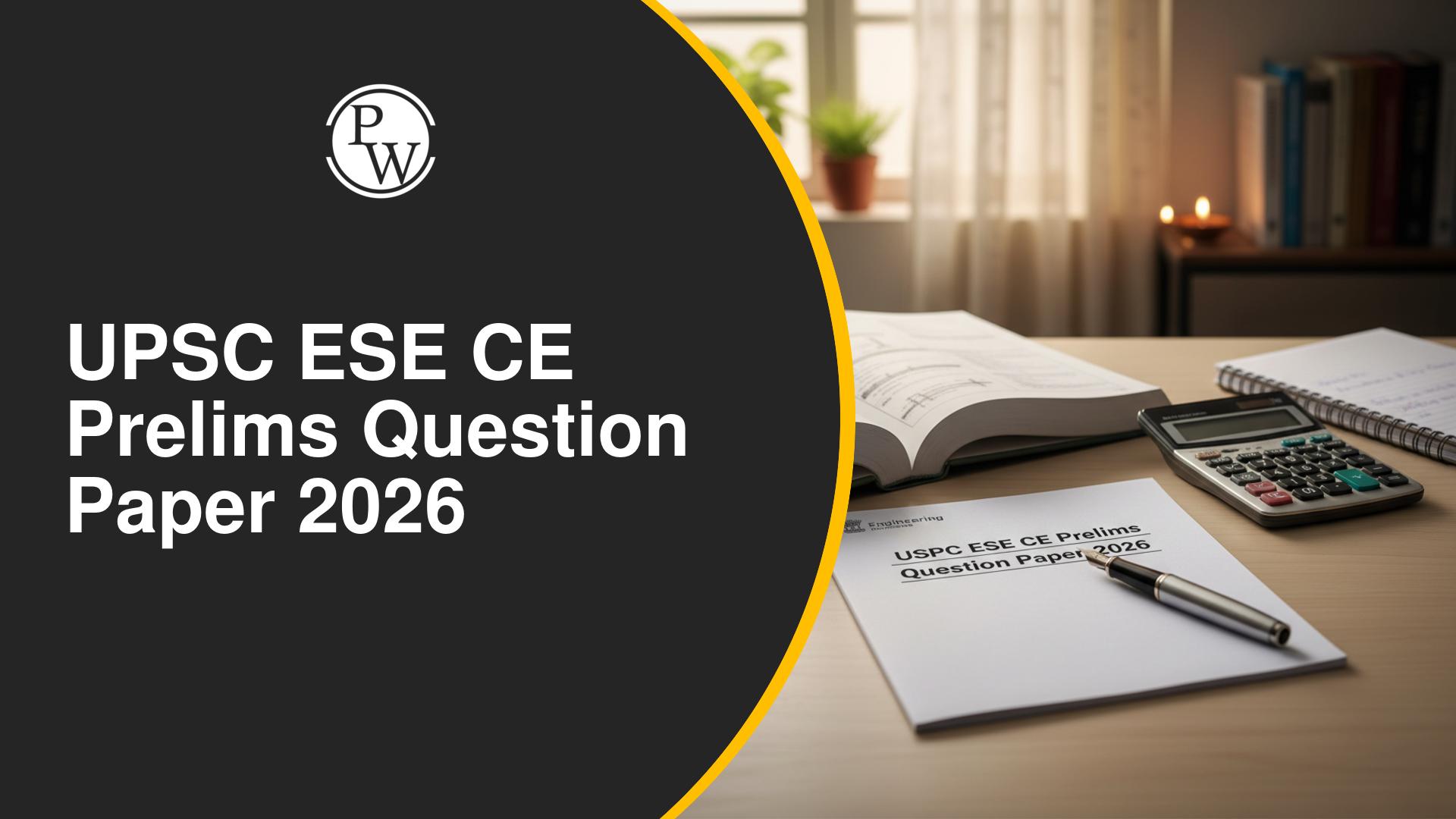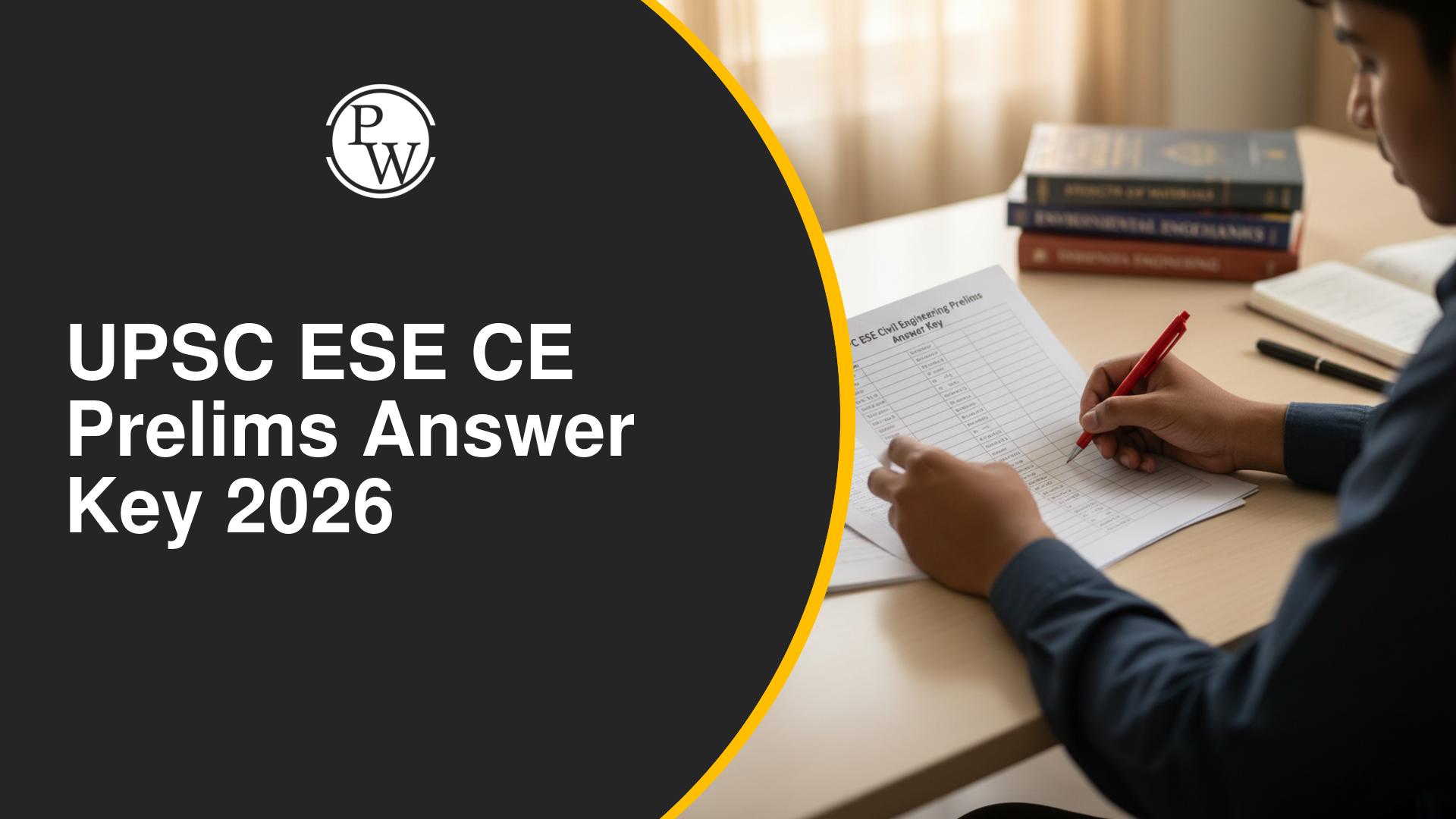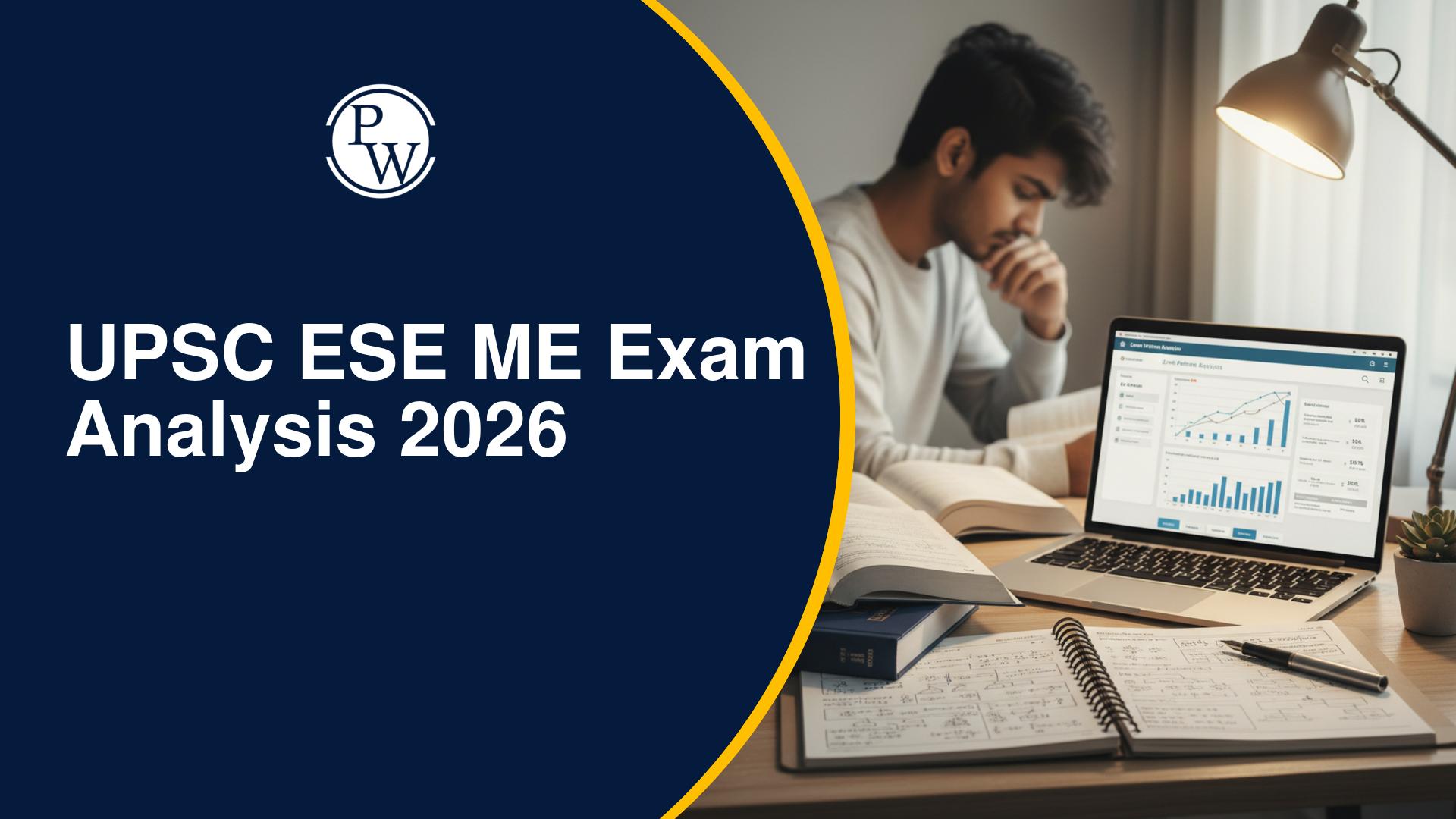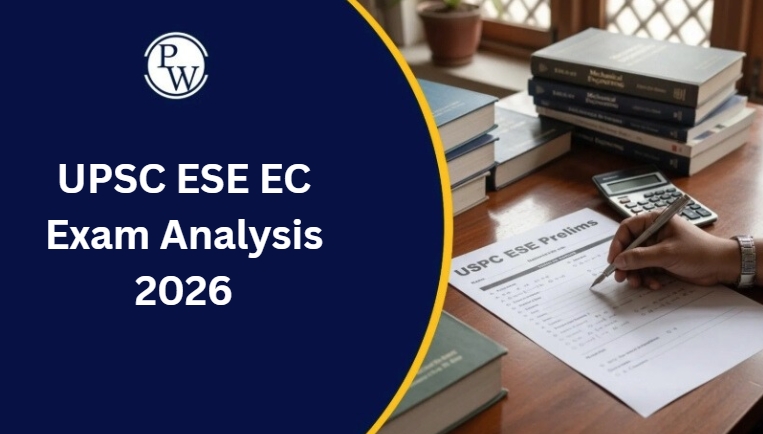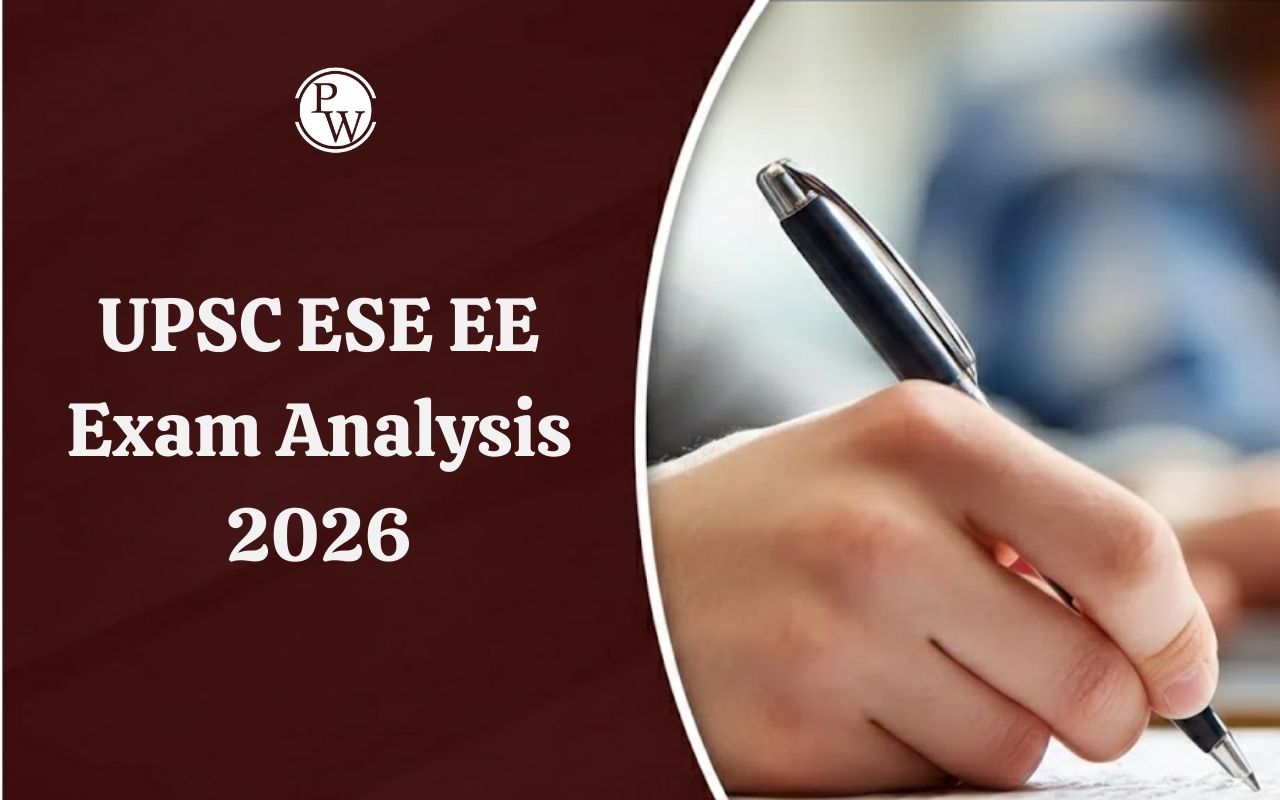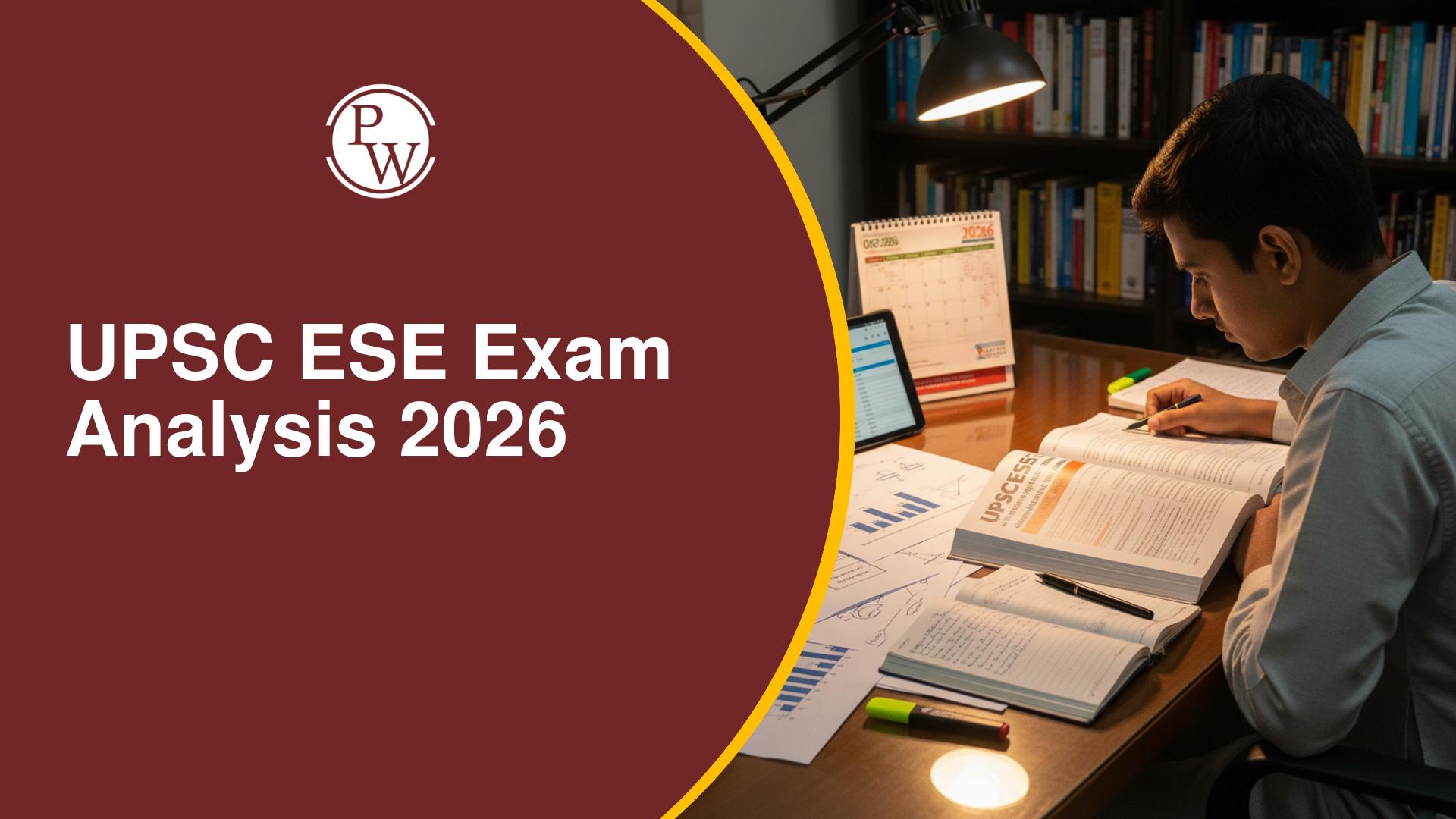
UPSC ESE Electrical Engineering Syllabus 2026: The Union Public Service Commission will release the UPSC ESE Electrical Engineering Syllabus 2026. Candidates seeking to prepare for the UPSC ESE 2026 Exam must understand the complete syllabus to organize their preparation approach accordingly. The syllabus is the most important aspect of effectively preparing for the exam.
According to UPSC anual calander, the UPSC ESE Preliminary examination will be conducted on Feb 8, 2026. Candidates gearing up their preparation for UPSC ESE EE Mains must review the comprehensive syllabus and prepare effectively.
UPSC ESE Electrical Engineering Syllabus 2026
The syllabus is a vital resource that covers the topics to be covered in the Preliminary and Mains examinations. Aspirants seeking to grab the prestigious government job position via UPSC ESE 2026 must kick-start their preparation effectively as per the prescribed syllabus.
Engineering graduates are strongly urged to begin their examination preparation by developing a structured study plan that corresponds to the UPSC ESE Syllabus 2026 and the UPSC ESE Exam Pattern 2026, both are extensively outlined below.
Also, Read -
UPSC ESE Electrical Engineering Syllabus 2026
The UPSC ESE Notification 2026 covers the ESE Electrical Engineering Syllabus. National and International Issues, Current Affairs, National and International Policies, and other topics are covered in the ESE Prelims syllabus. Because the ESE Mains exam is descriptive, questions from Engineering courses such as Matrix Theory, Electric Circuits, Transistors, Power Systems, and so on are asked. There is no set syllabus for the IES Personality Test round.
UPSC ESE EE Syllabus 2026 Overview
The UPSC ESE Exam 2026 is being administered by the Union Public Service Commission to fill up Grade A & B openings in various departments. The table below displays the important points of the UPSC ESE Electrical Engineering Syllabus 2026:
| UPSC ESE Electrical Engineering Syllabus 2026 Overview | |
| Particulars | Details |
| Name of the exam | UPSC ESE |
| Conducting Authority | Union Public Service Commission |
| Exam Mode | Offline |
| Category | Engg Jobs |
| Post Name | IES Officers (Grade A & B) |
| Branch specification | Electrical |
| UPSC ESE Selection Process | Preliminary, Mains, and Interview |
| Level of Exam | National |
| Exam Frequency | Once a Year |
| Subjects Asked |
|
| Exam Duration |
|
| Types of Questions Asked |
|
| Official Website | https://upsc.gov.in |
UPSC ESE Electrical Engineering Syllabus for Prelims Exam
The syllabus for UPSC ESE Electrical Engineering for Prelims is divided into two categories. Each section contains 250 questions, all of which are multiple-choice. Candidates receive one mark for each correct answer.
The first Prelims paper covers General Awareness and Engineering Aptitude, while the second paper focuses on the chosen Engineering Discipline.
Paper I of the UPSC ESE Prelims 2026 will contain questions from the General Studies and Engineering Aptitude sections that are common to all branches. The following is the entire UPSC ESE Syllabus 2026 for General Studies and Engineering Aptitude:
| UPSC ESE Electrical Syllabus 2026 for Prelims Exam | |
| Topics | Sub-topics |
| Engineering Aptitude |
|
| General knowledge |
|
| Geography |
|
| Current Affairs |
|
| Constitution and History of India |
|
The objective-type questions in Paper II of the UPSC ESE Preliminary Examination will be drawn from the units indicated below (both Paper I and Paper II). Those who pass the preliminary exam will take paper I and paper II of the UPSC ESE mains examination.
UPSC ESE Electrical Engineering Syllabus for Mains Exam
Paper I and Paper II comprise the UPSC ESE Electrical Engineering Mains Exam Pattern. Both are descriptive, and the question difficulty is at the graduate level. Candidates have three hours to finish the questions for each paper. Candidates can prepare by consulting the entire ESE Syllabus.
UPSC ESE Electrical Engineering Syllabus for Paper- I
The UPSC ESE Electrical Engineering Syllabus is split into two sections. Candidates must respond to both papers descriptively, one after the other. The first paper in Electrical Engineering focuses on the Fundamentals of Electrical Engineering and includes foundational problems.
The UPSC ESE Syllabus 2026 for Electrical Engineering is given in the table below:
| UPSC ESE Electrical Syllabus 2026 for Paper-II | |
| Section | Syllabus |
| Engineering Mathematics | Matrix Theory, Eigenvalues, Eigenvectors, A System of Linear Equations, Numerical Methods for the Solution of Nonlinear Algebraic Equations, Differential Equation, Integral Calculus, Partial Derivatives, Maxima and Minima, Line Surface and Volume, Fourier Series, Initial and Boundary Value, Taylor and Laurent's Series, Statistics formula, Sampling Theorem, Random Variables, Normal and Poisson Distribution, Regression Analysis |
| Electric Circuits and Field | Circuit Analysis, Network Graphs, KCL, KVL, Node, and Mesh Analysis, Ideal Current and Voltage Sources, Thevenin's, Norton's Superposition, Maximum Power Transfer, Transient Response of AC and DC, Sinusoidal, Steady State Analysis, Basic Filter Concept, Two Ports Network, Three-Phased and Magnetic Coupled Circuits, Line Plane and Spherical Charging Distribution, Ampere’s and Bio-Sava RT's Law. Maxwell Equation |
| Electrical Materials | Engineering Mathematics, Electrical Materials, Electric Circuits and Fields, Electrical and Electronics Measurement, Computer Fundamentals, Basic Electronics and Analogue, Electrical Machines, Power Electronics and Drives, Signal Processing, Ferromagnetic Materials, Photoconductive Materials, Nanomaterials, Superconductors |
| Electronic Measurement | Accuracy and Precision, Bridges and Potentiometer, Moving Coil and Iron, Dynamometer and Induction Type Instruments, Measurement of Voltage, Current, Power, Energy Factors, Instrument Transformers, Digital Volt and Multimeters, Q-Meters, Oscilloscopes, Virtual Memory, File System, Transducers |
| Computer Fundamentals | Number System, Boolean Algebra, Altimetric Functions, Basic Architecture, CPU/IO/Memory Unit, Peripheral Devices, Data Management and Processing, OS, Networking, Virtual Memory Files, File System, Virtual Programming Files, An Example of Programming Language |
| Basic Electronics Engineering | Bare Semiconductor Diodes, Transistors, Characteristics, Junction and Field Effect Junctions (BJT, FET, and MOSFETS) Types of Transistors and Amplifiers, Feedback Amplifiers |
UPSC ESE Electrical Engineering Syllabus for Paper- II
The ESE Electrical Engineering Paper II is more extensive and specifies the topics. The exam contains eight descriptive questions, and candidates must answer at least five of them correctly. The detailed ESE Electrical Engineering syllabus can be found in the table below.
| UPSC ESE Electrical Syllabus 2026 for Paper-II | |
| Section | Syllabus |
| Analog and Digital Electronics | Operational Amplifier, Application and Combinations of the Amplifier and Sequential Logic, Circuits, Multiplex, Multivibrators, Sample and Hold Circuits, A/D and D/A Vibrators, Simple Active Filters, Microprocessor Basic- Interfaces and Applications, Basic and Linear Integrated Circuits, Analogue Communication Basic, Digital Communication Basic, Time Domain Multiplexing, Power Line Carrier Communication System |
| Systems and Signal Processing | Discreet and Continuous Time Representation, Scaling of Operations, Time-Variant, Causal Systems, Time-Variant, Fourierr Series, Representation of Continuous Periodic Signals, Discrete Fourier Transform, Linear Combination, Discrete Cosine Transform, FIR Filter, Bilinear Transformation |
| Control Systems | Transfer Function, Principal of Feedback, Block Diagram, Signal Flow Paragraphs, Steady-State Errors, Routh Hurwitz Creation, Nyquist Technology, Bode Plots, Root Loci, LED Leg Compensation, Stability Analysis, State Page Model, State Translation Matrix, Controllability and Observability, Linear State Variable Feedback, PID and Industrial Controller |
| Power Systems | Basic Power Generation Concept, Steam Gas, Water Turbines, Transmission Line Models and Performance, Circuit Breakers, System Stability Concept, The Concept of Power System Dynamic, HDVC Transmission and Fact Concept, Smart Grid Concept, Fundamentals of Power Economics, Radial and Ring Main Distribution, Power Factor Analysis and Cable Performance, Insulation and Transmission Line Models |
| Electrical Machines | Single Phase Transformer, Connection, Parallel and Autotransformers Types of Winding, Operating and DC Machines, Armature Reaction, Commutation, Starting and Speed Control of Motors-Principal, Types Characteristics, Starting Speed, Synchronous Machines, Performance Regulations, Parallels Operations of Generator, Servo and Stepper Motors, Induction Motions, Types and Features. |
UPSC ESE Electrical Engineering Exam Pattern 2026
The UPSC ESE Electrical Exam Pattern is provided in the ESE Notification 2026 PDF. The ESE 2026 exam pattern is classified into preliminary and main examinations. The ESE preliminary examination includes two parts: general and technical abilities, as well as a selected subject by the student.
Two papers are also included in the ESE main examination. Candidates should also examine the UPSC ESE Electrical Engineering syllabus 2026. The IES Prelims Exam Pattern consists of two objective-type (multiple-choice) question papers worth 500 marks. Paper I is worth 200 marks, whereas Paper II is worth 300 marks.
Candidates are eligible for the Main exam after clearing the preliminary exam. The exam consists of two papers in which the candidate must answer five descriptive questions out of eight optional questions in each paper. The prelims and main Exam patterns for the UPSC ESE Electrical Examination can be found in the table below.
| UPSC ESE Electrical Engineering Exam Pattern 2026 | |||
| Preliminary Exam Pattern | |||
| Subject | Duration | Maximum marks | Type of paper |
| General Studies and Engineering Aptitude | 2 hours | 200 | Objective- Type |
| Civil/Electrical/Electrical /Electronics and Telecommunications Engineering | 3 hours | 300 | |
| Total | 5 hours | 500 marks | |
| Mains Exam Pattern | |||
| ESE/IES Exam | Duration | Maximum Marks | Type of paper |
| Paper-I (Electrical Engineering) | 3 hrs. | 300 | Descriptive |
| Paper-II (Electrical Engineering) | 3 hrs. | 300 | |
| Total | 6 hrs. | 600 marks | |
UPSC ESE Electrical Engineering Weightage 2026
The UPSC ESE EE Prelims exam consists of two papers: Paper 1 (General Studies & Engineering Aptitude, 200 marks) and Paper 2 (Electrical Engineering, 300 marks), with the core technical subjects like Electrical Machines, Power Systems, Power Electronics, and Control Systems. Here is the subject-wise weightage for UPSC ESE Electrical Engineering Prelims and Mains 2026, based on recent trends and analysis.
UPSC ESE EE Prelims Subject-wise Weightage
The ESE Prelims Paper 2 (Electrical Engineering) gives the highest weightage to core subjects like Electrical Machines, Power Systems, Power Electronics, and Control Systems, with other subjects also contributing a significant weightage:
| UPSC ESE EE Prelims Subject-wise Weightage | |
| Subject | Number of Questions |
| Electrical Machines | 13-14 |
| Power Systems | 13-14 |
| Power Electronics | 12-13 |
| Control Systems | 12-13 |
| Signals & Systems | 8-10 |
| Analog & Digital Electronics | 7-9 |
| Electrical & Electronic Measurements | 7-9 |
| Electromagnetic Fields | 6-8 |
| Engineering Mathematics | 5-7 |
| Basics of Material Science | 5-7 |
| Computer Fundamentals | 4-6 |
| Others (including General Aptitude, etc) | 8-10 |
UPSC ESE EE Mains Subject-wise Weightage
The ESE Mains consists of two technical papers (each 300 marks), with subject-wise weightage distributed across core and allied Electrical Engineering topics, focusing on in-depth technical understanding:
| UPSC ESE EE Mains Subject-wise Weightage | |
| Subject | Approximate Weightage of Marks (Per Paper) |
| Electrical Machines | 60-70 |
| Power Systems | 50-60 |
| Power Electronics & Drives | 45-55 |
| Control Systems | 40-50 |
| Signals & Systems | 30-40 |
| Analog & Digital Electronics | 30-40 |
| Electrical & Electronic Measurements | 25-35 |
| Electromagnetic Theory | 20-30 |
| Microprocessors & Microcomputers | 20-30 |
| Measurement & Instrumentation | 20-30 |
UPSC ESE Electrical Engineering Preparation Tips
Exam patterns differ for Prelims and Mains, hence candidates require specific IES Preparation Strategies for each. Candidates should begin preparing for the main exam as soon as possible and make the following IES Electrical Engineering Preparation Tips a habit.
- Before commencing UPSC ESE 2026 preparation, choose the best books that are based on the latest UPSC ESE electrical syllabus and exam pattern.
- Practice answering UPSC ESE question papers as much as you can to increase your comprehension and precision when responding to questions.
- It is critical to prepare for the UPSC ESE promptly. Examine your subject and prepare according to your time limits.
- Maintain hydration and regular exercise. It is critical to have a healthy lifestyle during examinations.
- Manage your schedule according to your weaker and stronger sections of the UPSC ESE syllabus.
- Attempt UPSC mock tests regularly.
Excel your UPSC ESE 2026 preparation journey with PW’s UPSC ESE Online Coaching. The Physics Wallah offers well-structured study material, mock tests, e-books, and more to scale up the aspirant's preparation.
UPSC ESE Electrical Engineering Syllabus 2026 FAQs
Where can I check the UPSC ESE Electrical Syllabus 2026?
How many papers are included in the preliminary stage?
Is it necessary to review the UPSC ESE Electrical syllabus 2026?
How should I cover the UPSC ESE EE Syllabus 2026?

